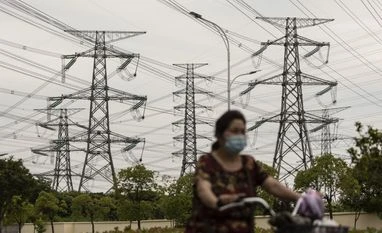Power regulator CERC issues staff paper on power market coupling
The proposed coupling of the market is aimed at merging all the existing power market platforms and the contracts offered by them
)
Listen to This Article
The apex electricity sector regulator4 -- the Central Electricity Regulatory Commission (CERC) -- has issued a staff paper on the proposed power market coupling which would entail merger of all the existing power trading companies into one single marketplace for electricity trading. Following the directions of the ministry of power, CERC has initiated the regulatory process by issuing an initial staff paper and has invited stakeholders’ comments.
The proposed coupling of the market is aimed at merging all existing power market platforms and the contracts offered by them. The proposed structure has also examined setting up of a Market Coupling Operator (MCO), which will be entrusted with the operations of the spot power trading market. CERC has suggested a unified body of all power exchanges as the MCO, or a separate institution such as Grid India to act as the MCO.
India has three power exchanges, all of them privately owned, which operate in the spot power market. The spot power market, as the name suggests, caters to short-term power trading. Power distribution companies, or discoms, which sell electricity to consumers usually have long-term power purchase contracts with power generators. However, for last minute requirements, the discoms tap into the exchanges which have several gencos as power sellers. The price is discovered through the trade done on the exchange’s platform.
Of the three power exchanges – India Energy Exchange (IEX) is the oldest and the biggest, and almost holds a monopoly in the day-ahead power trading. These exchanges have several power trading mechanisms – term ahead, green term ahead, day ahead, intraday, and real time market. Day-ahead market entails trading of power a day before. Sellers are power generating stations and buyers range from discoms, industrials, and commercial consumers.
The other exchanges are Power Exchange India Ltd (PXIL), in which state-owned NTPC bought a 5 per cent stake recently, and the newly-created Hindustan Power Exchange (HPX). IEX holds close to 90 per cent of the day-ahead spot power trading market. PXIL holds 40 per cent market share in the term-ahead market and Renewable Energy Certificates (RECs).
Also Read
If proposed market coupling does happen, it will give a boost to PXIL and HPX but would be a major hit to IEX -- which is the market leader. Experts fear not only will IEX lose its market to other players but there is a chance it might cease to exist.
The concept of market coupling has been adopted from the European electricity market, where there is cross-country power trading through different transmission networks. This makes the role of a single MCO necessary. Several stakeholders have pointed out, India has only one transmission operator and one grid manager, managing the network of all states, so a MCO is not required.
The union power ministry, however, has pointed out the mismatch in the power trade with an exchange with the necessary transmission network it has access to.
When CERC issued the draft power market regulation suggesting market coupling for the first time in 2021, it received diverse comments from the various industry stakeholders. India’s largest power generator, NTPC, voted in favour of coupling and said, “Market coupling would result in a larger marketplace with higher volumes and more efficient price discovery instead of a number of smaller markets (exchanges).”
Whereas, IEX had said, “Coupling will take away the price discovery function that will significantly diminish the value proposition of power exchanges. It will reduce them to meagre bid-collection centres or ‘post offices’ for MCOs in day-ahead market or real-time market, which constitutes around 98 per cent of the market.”
PXIL, however, was in favour of the regulation.
The last date for commenting on the staff paper is September 30, 2023.
More From This Section
Topics : CERC power reforms
Don't miss the most important news and views of the day. Get them on our Telegram channel
First Published: Aug 22 2023 | 8:46 PM IST
